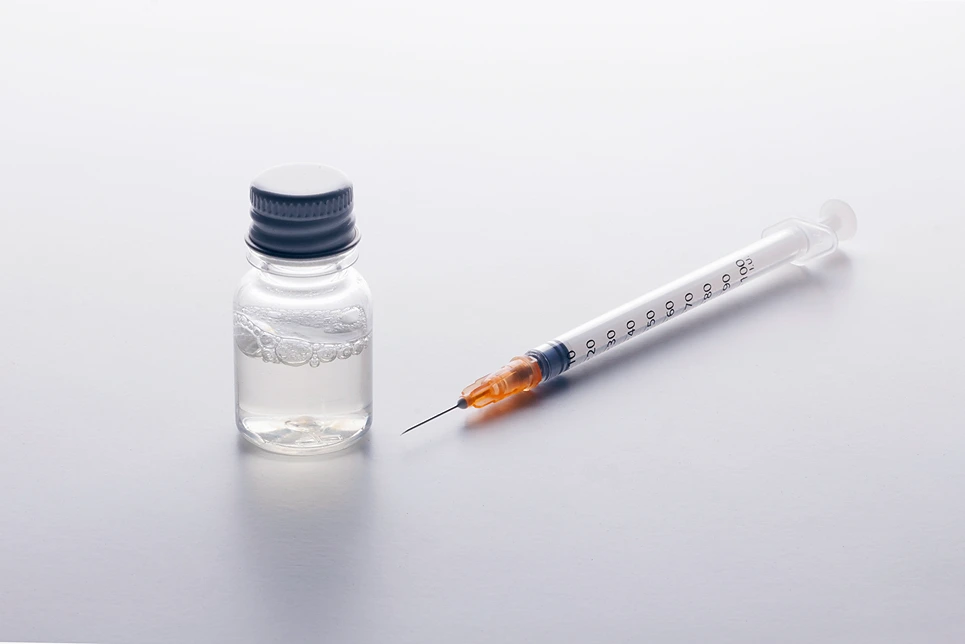An informative guide to understanding the potential advantages and drawbacks of testosterone replacement therapy.
What is Testosterone Therapy?

Testosterone, the primary male sex hormone, plays a critical role in various bodily functions. It fuels the development of male characteristics during puberty, influences sex drive, supports muscle mass and bone strength, and even contributes to mood regulation.
However, testosterone levels naturally decline as men age. In some cases, this decline can become abnormally pronounced, leading to a condition called hypogonadism. This medical diagnosis indicates that the body doesn’t produce enough testosterone to maintain optimal function.
Testosterone therapy (TRT), also known as testosterone replacement therapy, aims to address this deficiency. It involves administering supplemental testosterone through various methods, including:
- Injections: Directly into the muscle.
- Skin Patches: Worn on the body to gradually release testosterone.
- Gels: Applied topically.
- Pellets: Implanted under the skin for sustained release.
While clinically diagnosed hypogonadism is the primary reason for TRT, it’s sometimes also marketed for broader uses like combating the general effects of aging or boosting athletic performance. It’s essential to note that the benefits and risks in these less-studied scenarios are the subject of much debate.
Potential Benefits of Testosterone Therapy
While the degree of benefit can vary drastically between individuals, testosterone therapy may offer the following improvements:
Sexual Function
- Libido: TRT may enhance sex drive in men with low testosterone.
- Erectile Function: Some men report improved erections, but response is not guaranteed.
- Fertility: In cases where low testosterone is the cause of infertility, TRT may help, but it’s important to note that it can have the opposite effect in men with normal fertility.
Body Composition
- Muscle Mass and Strength: Testosterone plays a significant role in muscle development. TRT can help increase both muscle size and strength in some men.
- Fat Reduction: TRT may lead to modest decreases in fat mass, especially when combined with healthy lifestyle changes.
Bone Density
- Osteoporosis Prevention: As men age, declining testosterone increases their risk of fragile bones. TRT can help maintain bone density, potentially reducing fracture risk.
Mood and Well-being
- Reduced Depression and Irritability: There’s some evidence that TRT can alleviate symptoms of depression and irritability in men with low testosterone.
- Improved Energy Levels: Some men experience a boost in energy and a decrease in fatigue with TRT.
Important Note: It’s crucial to remember that the extent of these benefits can vary widely from person to person. Some men may experience significant changes, while others may notice minimal differences.
Other Potential Benefits

While it requires further research to fully confirm a direct link, testosterone therapy is being investigated for its potential to:
- Improve cognitive function: Studies are examining if TRT has any impact on memory and attention.
- Reduce risk of metabolic issues: Research suggests a connection between low testosterone and a higher likelihood of conditions like type 2 diabetes. It’s uncertain if TRT can reverse this risk.
Important Reminder: These potential benefits are still under investigation, and results are mixed. It’s essential to keep expectations realistic and not view TRT as a cure-all for various aspects of health.
Significant Risks of Testosterone Therapy
Testosterone therapy is not without potential drawbacks, and it’s essential to weigh these risks seriously before starting treatment. Some of the most significant concerns include:
Cardiovascular Health
- Increased Risk of Heart Complications: Studies suggest a possible link between TRT and a higher chance of heart attacks and strokes, especially in older men or those with pre-existing heart disease.
- Blood Clots: TRT may elevate the risk of blood clots forming in the deep veins (deep vein thrombosis) or traveling to the lungs (pulmonary embolism), which can be life-threatening.
Prostate Issues
- Enlarged Prostate (Benign Prostatic Hyperplasia): TRT can worsen existing prostate enlargement, a common condition in older men, leading to urinary symptoms.
- Prostate Cancer: Although controversial, there’s concern that TRT might stimulate the growth of undetected prostate cancer. That’s why rigorous prostate monitoring is necessary during treatment.
Other Risks
- Sleep Apnea: TRT can worsen sleep apnea, a condition characterized by pauses in breathing during sleep.
- Reduced Sperm Production: TRT may suppress natural testosterone production and reduce sperm count, potentially affecting fertility.
- Acne and Oily Skin: Increased testosterone can sometimes trigger acne flare-ups or more oily skin.
- Fluid Retention: TRT may cause swelling, especially in the ankles.
Critical Point: These risks are not guaranteed to occur in every man who undergoes TRT. However, they highlight the importance of thorough discussion with your doctor and regular monitoring to catch any adverse effects early.
Is Testosterone Therapy Right for You?
The decision of whether to start testosterone therapy is a highly personal one. There’s no simple, universal answer. Here are some key points and questions to help guide your decision:
- The Importance of Medical Consultation: A thorough discussion with your doctor is absolutely essential. They can assess your individual symptoms, testosterone levels, and overall health to determine if TRT is potentially suitable for you.
- Red Flags: Certain pre-existing health conditions may make TRT particularly risky. These could include:
- Heart disease
- Prostate cancer
- Sleep apnea
- High red blood cell count
- A history of blood clots
- Questions to Ask Your Doctor:
- What are the specific potential benefits I could realistically expect?
- Given my health profile, what are my most significant risks?
- How will you monitor me for side effects if I start TRT?
- Are there any lifestyle changes or alternative therapies I should try first?
- Beyond Hype and Fear: Don’t be swayed by hyped-up claims about TRT, nor by overly negative portrayals. Seeking reliable, evidence-based information is key.
It’s your body, and the choice should be based on solid information and open communication with your doctor.
The Debate Continues
While testosterone therapy shows promise for some men, the lack of large-scale, long-term studies means many questions remain about its ultimate safety and the extent of its benefits beyond treating hypogonadism.
Research is ongoing, and as more data emerges, we’ll hopefully have clearer guidelines for using TRT most effectively and safely.
It’s also important to be aware of potential alternatives to TRT for some goals. Lifestyle changes like exercise, healthy diet, and weight management can also boost energy levels, improve muscle mass, and benefit overall health.
Conclusion

Testosterone therapy can be a valuable tool in certain cases, but it’s not a risk-free or universally beneficial proposition. Both its potential rewards and its potential downsides deserve serious consideration.
Arming yourself with accurate information and having open conversations with your doctor is the best way to make responsible decisions about your health. Stay away from relying solely on marketing claims or solely on fear-based narratives.
Take ownership of your well-being. If you’re considering testosterone therapy, seek reliable medical advice and prioritize a balanced understanding of both the benefits and the risks.

